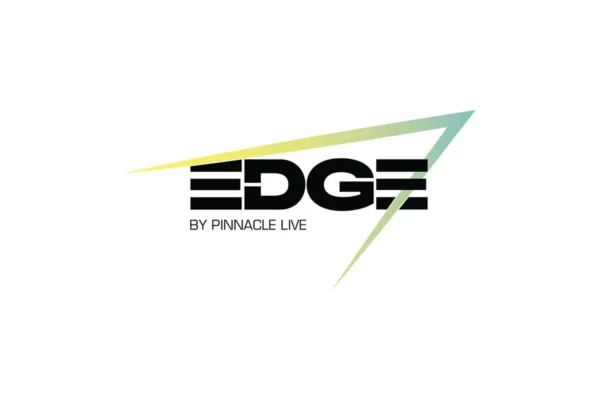Part 2: Technology is King; Food and Beverage a Distinguishing Feature; Support Service Expectations are Growing; New Conditions demand New Relationships
While the formats of meetings, conventions and exhibitions are evolving constantly and rapidly these days, centres often have fewer options and less flexibility given that they are structural rather than conceptual entities. Spatial configurations are one of the most obviously challenging areas – but what about equally important things like technology, services and business relations? These too are evolving in ways that are important for both centres and their clients.
Technology is King: Nowhere have expectations changed faster than in the world of technology, where innovations like social networking can create expectations and agendas far in advance of an event and both sessions and presentations require ever-more sophisticated support up to and including remote participation. The good news is that much of the new technology is wireless and user-driven, which means that the main challenge for centres is often more related to capacity than hardware.
However, there is also some bad news: new technology and capacity have to be paid for and as expectations for free services grow, the ability to finance required additions becomes a huge challenge. This can create tensions that make it more difficult for centres and their clients to come to an understanding, particularly in times where finances are strained all around.
Another big technology question is based on the fact that as perhaps the most rapid area of change, it requires constant monitoring and updating of both equipment and expertise, which raises questions like what to invest in and who should do the investing. In-house vs. outsourcing has therefore become another part of the puzzle; should centres be making these investments themselves, or look to outside suppliers to both supply the expertise and take the risk? Will larger events of the future be more likely to arrive with their own technology, and if so, how will this interface with in-house capabilities? Will areas like virtual or hybrid meetings eventually require dedicated spaces, complicating the configuration issue even further? These are all questions that centres will need to address in order to be better prepared for eventualities.
Food and Beverage a Distinguishing Feature: One area that has evolved more than most is the matter of more sophisticated F&B – in fact, this has in many cases become a defining factor for many events and a big issue for both planners and delegates. Here again, centres have responded with innovation and creativity, to the point where one of the primary selling features many centres is their cuisine, and how it not only delivers quality but often reflects the local experience. One feature of particular note is how many centres now address their sustainability agenda through meal services, with local food products and sustainable preparation forming an important part of the product offering.
Unlike other areas, this seems to be one where there is a general willingness by clients to pay for what they get. As a result, it has become an important factor in maintaining reasonable revenues even when traditional revenues for space and services erode.
Support Service Expectations are Growing: Another area is increasing demand is that of overall event servicing, sometimes extending even to assistance with on-site coordination. Many centres are now being called upon to deliver these higher levels of event support not only because of increasing event complexity, but also because the client’s own resources may have been reduced as a result of corporate or association cutbacks and outsourcing.
Generally, centres have done everything they can to accommodate such requests – but when it reaches a point where they need to beef up their own staff, it quickly becomes a matter of cost increases and the question of who will pay. Interim measures are something everyone tries to address – but when expectations become ongoing, it again challenges the whole financial equation.
New Conditions demand New Relationships: A lot of the financial basis for the meetings industry was built on the willingness of governments to invest in facilities that would attract major events in return for an anticipated benefit in the form of economic impacts from delegate spending. The formula still works – but more and more governments are simply incapable of making the major investments required to build and maintain costly facilities. Furthermore, this can only be expected to get worse, at least for the foreseeable future, while global economic uncertainties remain. Under these conditions, the expectation that centres will continue to make major concessions in order to secure business becomes less realistic, and alternatives need to be considered.
Various centres are now exploring new models for how risk and reward are shared, including rent concessions in return for participation in any upside that may result from increased attendance. Similarly, strategies that reduce costs and increase certainty – like multi-year agreements or guarantees of particular service levels – can introduce new ways of ensuring everyone can benefit from a successful event. These will have to be the innovations of the future if there is to be the kind of equitable distribution of costs and benefits needed to sustain the industry.
Good communications is the key to all these issues – and should be a top priority for centres and clients alike. Knowing what each party is facing, and being willing to pursue collective solutions has been a key to success in the past – and will be even more important as we evolve together into the future.

Geoff Donaghy is AIPC President, CEO of International Convention Centre Sydney and Director Convention Centres AEG Ogden.
AIPC represents a global network of 170 leading centres in 54 countries with the active involvement of more than 900 management-level professionals worldwide. It is committed to encouraging and recognizing excellence in convention center management, based on the diverse experience and expertise of its international representation, and maintains a variety of educational, research, networking and standards programs to achieve this. AIPC also celebrates and promotes the essential role of the international meetings industry in supporting economic, academic and professional development and enhancing global relations amongst highly diverse business and cultural interests.
For further information, contact marianne.de.raay@aipc.org or visit www.aipc.org.






























